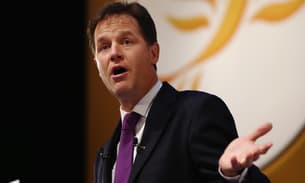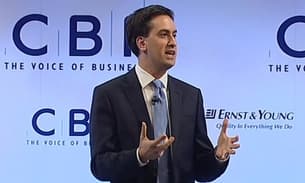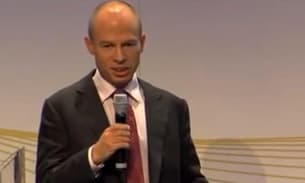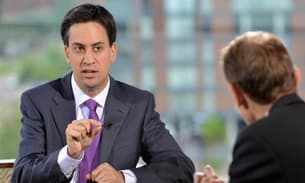Election expenses: Five more MPs face questions
A further five MPs, from across the political spectrum, are under scrutiny over their election spending after a joint investigation by the Bureau of Investigative Journalism and Channel 4 News.
Documents submitted by Phil Woolas, Sarah Teather, Ben Gummer, Gavin Barwell and Dan Byles raise questions which could cast doubt about whether the system currently in place to ensure fairness is delivering. There are strict spending limits on how much candidates can spend on their campaigns. If candidates go over this limit even by £1, the consequences could be very serious, an MP could be barred from parliament, there could be a by-election and there could even be criminal charges.
A number of questions have already been raised about the campaign costs submitted by Zac Goldsmith, the new MP for Richmond Park. He denies any wrongdoing but the Electoral Commission have put his case under review. Mr Goldsmith insists he will be vindicated.
Phil Woolas, Labour MP for Oldham East and Saddleworth
The shadow immigration minister ordered but did not use 23,000 leaflets. If he had charged for them, the cost would have taken him over his spending limit. Experts told Channel 4 News that while paying only for what you use is legal it amounts to a loophole because its almost impossible to be able to verify whether items are actually used or not.
Phil Woolas told Channel 4 news: “I have applied the law as it is, the law is quite clear, you declare what you use and not what you order.”
Ben Gummer, Conservative MP for Ipswich
His campaigners used T-shirts with the slogan “Vote for Ben in 2010” but his invoices submitted by his team included no charges for these. Mr Gummer also paid his campaign manager Sophie Stanbrook £8,750 for the long campaign prior to the dissolution of parliament – but nothing after this when the spending limits are much tighter.
If Mr Gummer had paid Ms Stanbrook at the same rate after parliament was dissolved as he did before then he would have been over his spending limit by as much as £1,800. Asked about the T-shirts the Conservative Party told Channel 4 News that items bought prior to 25 November 2009 do not count if used prior to the dissolution of Parliament.
The party said that if an individual used an item after that date, that is a matter for them, thereby suggesting that such items do not need to be accounted for.
A spokesman added: “Many staff did paid work until the dissolution of Parliament and then agreed to work on a voluntary basis.”
Sarah Teather, Liberal Democrat MP for Brent Central
Ms Teather is Minister for Children in the coalition government. However her election expense returns did not make it clear where she has split her costs – and some of Ms Teather’s sums didn’t appear to add up.
One receipt shows a spend for postage of nearly £11,000. In Teather’s return, it said a quarter of this was for her campaign, but when we look at the actual figure declared, it’s inexplicably lower – removing eight hundred pounds off her campaign spend.
Sarah Teather’s agent told Channel 4 News that the discrepancies were due to inaccurate wording in relation to how invoices were split. He said they accepted the wording on the returns “could and should have been clearer” but insisted the financial totals were “fully accurate”.
Dan Byles, Conservative MP for North Warwickshire and Bedworth
Another new face at Westminster is Dan Byles who won his seat by just 54 votes. Mr Byles cut the cost of giant boards (bearing his name and face) in three, apparently by charging the bulk of the cost to election campaigns in the future – despite a chance he might never be the candidate in that constituency again.
This cut the declared cost of Mr Byles boards by £1,600. Had Mr Byles put the full costs of the boards on this election campaign he would have breached his legal spending limit.
The Conservative Party told Channel 4 News: “It is often the case that boards have an assumed life of three or four campaigns. In many cases candidates will purchase signs intending to use them in future elections.”
Gavin Barwell, Conservative MP for Croydon Central
Until recently the newly elected MP for Croydon Central was a key aide to Conservative deputy chairman and chief donor Lord Ashcroft. Barwell is also former operations director of the party.
The investigation discovered that Mr Barwell neglected to declare any payment for renting his office in Purley from the local Conservative Association.
Electoral rules require candidates to declare rental charges, even if their party owns the property. This is to ensure fairness.
He also appeared to claim a £500 printing refund without including the original charge, which may have further reduced his costs.
A Conservative Party Spokesman told Channel 4 News: “We have been made aware that there is an anomaly in Gavin Barwell’s return when the discrepancy was drawn to the attention of the Gavin Barwell’s agent, he realised his error at omitting two items of expenditure from the return and is taking the appropriate action.”
Election spending rules
Legislation regulated by the Electoral Commission sets out strict rules on the amount each candidate can spend on their campaign. Typically, campaign money is spent on leaflets, posters, signs and other promotional material as well as staff and office costs. It is vital that MPs keep their spending under control. If they fail to do so, it can be a criminal offence.
In 1999, Labour MP Fiona Jones was convicted of overspending on her limit, and kicked out of the Commons. She won on appeal but her political career never recovered. Experts say there is a very good reason for these tough sanctions, because fairness with election spending really does matter – to ensure a level playing field at the polls.
The rules exist so that each candidate has a fair opportunity of reaching the voters and to ensure that no rich candidate can “buy” an election. Going over the limit by even a small amount can have serious consequences, it could amount to an offence: an MP could be barred from parliament and there might have to be a by-election.
‘Tricks of the trade’
Zac Goldsmith’s returns stood out from the pack because of the sums it appears were involved. But these further cases suggest the system – designed to keep elections fair – could be falling short, at a time when public confidence in politicians is already extremely low.
Last week Mr Goldsmith insisted he had done nothing wrong and that he had been simply following what all other MPs do.
During a live interview with Jon Snow on Friday, Mr Goldsmith he said: “The formula that we used is exactly the same formoula, to the decimal point, used by every MP in the country.”
The Electoral Commission announced yesterday it is to review Mr Goldsmith’s expenses, after finding “the possibility of a failure to comply with the Representation of the People Act 1983”. He denies any wrongdoing.









